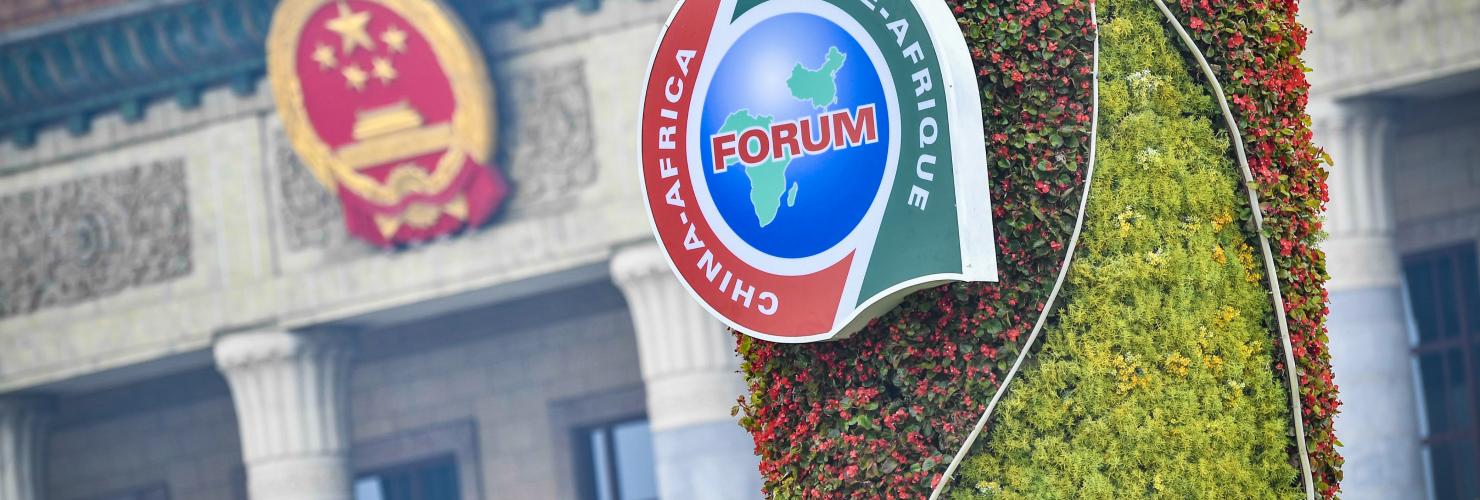

Europe cannot afford to ignore China’s deepening influence in Africa
China’s investments in African infrastructure capture most of the headlines. But the Chinese government has been doing far more than this, both intensifying and broadening its engagement with African regional organizations. These activities may be lower profile, but they are a growing influence on African policy makers, as Europe appears focused on its own problems.
China does not yet match the EU’s engagement in African institutions – particularly in terms of funding – but its activities across the continent are growing and deepening. April this year saw the opening of the China-Africa Institute (中国非洲研究院) in Beijing. The institute has been set up to boost ties between the two regions, providing a forum for exchange, training and research.
But there is a deeper intention. As Politburo Member and Director of the Office of the Foreign Affairs Commission Yang Jiechi explained at the opening ceremony, one of the institute’s tasks will be to ensure that cooperation between China and Africa is “presented to the world in the right way.” Peter Kagwanja, CEO of the Africa Policy Institute, agreed that its goal should be to “generate counter-narratives to debunk and discard doomsday theories” which he sees emanating from “Western” scholarship. Following the Chinese government’s script, he claimed, “Sino-Africa relations is still work in progress in which intensified people-to-people relations can lead to a China-Africa community of peace and prosperity.”
This is happening at a time when Europe’s attention has turned inwards. Faced with Brexit and rising nationalist populism, the European Union’s engagement with its neighboring continent has been focused on preventing Africans from migrating to Europe. Meanwhile China is busy building on its long-standing relationships with many African countries and broadening its diplomatic engagement with the continent as a whole. The effects of this closer collaboration could soon become felt, changing African policy maker’s perceptions of China and influencing their choice of who they cooperate with in future.
China invests heavily into building long-term relationships with African countries
A review of events over the past few years, that may not have made international headlines, reveals the direction of this trend. A few months before the opening of the China-Africa Institute, the African Union (AU) set up its own representative office in Beijing, partly funded by the Chinese government. The grand opening was celebrated in the Chinese government’s guesthouse, hosted by the Foreign Minister and State Councilor for Foreign Affairs. This was against the background of recent allegations that the AU’s Chinese-funded headquarters in Addis Ababa had been bugged, with data transferred at night to servers in Shanghai over a period of five years. The allegations were denied by officials on both sides and the incident appears not to have soured relations. In July last year, the Chinese government hosted high-ranking officials from almost all African states and AU officials for a two-week long China-Africa Defense Forum. Over the course of the past three years, China’s engagement with the AU, the Economic Community of West African States (ECOWAS) and the Southern African Development Community (SADC) has also intensified significantly. Many of these initiatives have been driven by Beijing.
Between January 2016 and April 2019, Chinese diplomats have regularly met with representatives from African regional organizations. The strongest relations have been built in the areas of diplomacy and security. But the Chinese government is also now providing support for African regional organizations’ peace-building efforts, with financial contributions and technical assistance. On an international level, it supported the AU’s push for a bigger role in peacekeeping within the UN.
While the eye-catching infrastructure investments shape many of China’s bilateral relations to African countries, investment in infrastructure hardly appears in China’s interactions with the region as a whole. Similarly, there are comparatively few efforts at fostering economic ties between China and Africa at the regional level. Economic matters occasionally appear, but remain vague, for example when the SADC chairperson invited the Chinese business community to invest in the region. It is worth watching whether this changes once the African Free Trade Zone, which is supposed to be announced at the AU Summit in July, is operational.
Most of China’s interactions with African regional organizations focus, instead, on the governmental level. China has hosted meetings with African representatives in preparation for the G20 summit and holds regular consultations with the AU on human rights issues. Consultations focus on socio-economy rights, especially poverty alleviation and also touch upon human rights at the international level. It has also offered funding to African regional organizations, most significantly, a 31.6 million USD grant to ECOWAS to build a new headquarters in Abuja, Nigeria.
In Africa, China is clearly positioning itself as a viable alternative to the EU
To put this in context, Europe’s engagement on the African continent still dwarfs that of China. The EU maintains a wide range of dialogue formats with African organizations, with the AU in particular. There are regular commission to commission meetings, minister meetings as well as summits every three years. With 20 billion Euros per year, the EU and its members states provide the most development assistance to Africa of any of its partners. The EU also contributes a substantial amount to the African Peace Facility. It is undoubtedly still an important source of funding.
But while the EU’s geographical proximity to Africa and its institutional similarities with the AU may have put it at an advantage so far, it cannot afford to ignore the growth in China’s political engagement with the continent. Other external actors, such as Japan and Russia, are stepping up their engagement with Africa too, but China is the most active. It is not just that it has been Africa’s largest trading partner since 2009, or that it set up a military base in Djibouti in 2017. European policy makers need to look beyond these frequently mentioned milestones and pay attention to the Chinese government’s continuous and multi-faceted political engagement with African policy makers at all levels.
China is clearly positioning itself as a viable alternative to the EU, increasingly also in terms of funding. In September 2017, the Chinese government pledged 100 million USD in military assistance for the African Standby Force. In March 2018, China’s Exim Bank announced that it would provide ECOWAS Bank for Investment and Development with 500 million USD for development projects in South and West Africa. As African leaders become increasingly annoyed with the EU’s focus on curbing migration – a fact that was demonstrated most recently by the AU’s rejection of the EU’s migration plan – these efforts could fall on fruitful ground.

